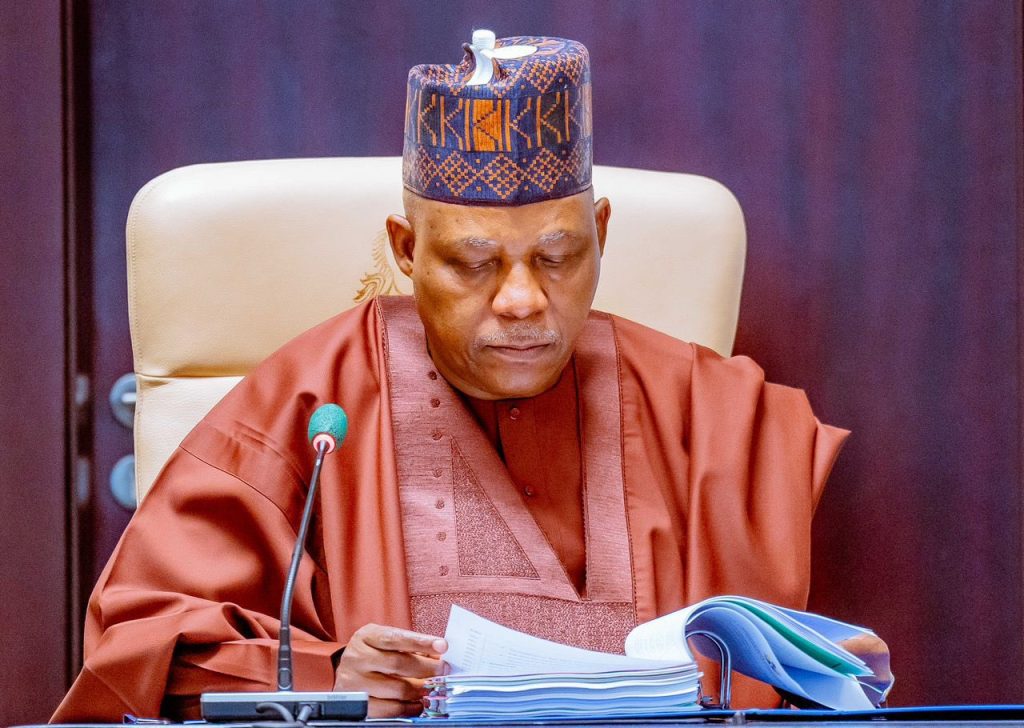No Nigerian child should learn on an empty stomach – VP Shettima

Vice President Kashim Shettima has reaffirmed the Federal Government’s commitment to ensuring that no Nigerian child is denied education because of hunger, stressing the importance of institutionalising the National Home-Grown School Feeding Programme.
Speaking at the National Policy Forum on the Institutionalisation and Implementation of the Home-Grown School Feeding Programme for Sustainable Economic Growth and Financial Inclusion, held Friday at the State House Banquet Hall, Abuja, Shettima-represented by his Special Adviser on Economic Affairs, Tope Fasua-said the initiative is both a social and economic investment.
He said: “Today we made a simple, powerful promise. No Nigerian child should learn on an empty stomach, and no Nigerian farmer should be excluded from the prosperity their labour creates. That is at the heart of our Home-grown school feeding programme for a sustainable economy. We are committed to building a $1 trillion economy by 2030.
“The journey does not begin on the trading floors or in boardrooms.It begins in the classroom and in the smallholder field, where nutrition drives learning and uptake drives livelihoods.
“School meals are not charity they are economic infrastructure, a guaranteed daily nationwide market that links local producers, processors, transporters, cooks and schools into a living value chain.
“This year, the federal government relaunched the Renewed Hope National Homegrown School Feeding Programme, signaling a decisive return to scale and systemization. The Programme is designed to boost enrollment and attendance, improve academic performance, and raise smallholder incomes through stable local procurement.
“Alongside the core program, the government has inaugurated an orphanages and Renewed Hope School Feeding Project and expansion to cater for school and out of school children which is an ambition of N1 trillion by 2026.”
He also said the programme will bring Micros Small and Medium Enterprises, MSMEs, women and vulnerable households into the financial system.
“When farmers see guaranteed demand, when cooks receive fair and timely pay, governments and parties are scaling and improving delivery standards, Nigeria’s relaunch places us at the forefront of this regional movement”, he added.
Meanwhile, the VP urged the private sector to invest in the programme’s value chain for sustainability and inclusion to boost human capacity development.
ActionAid Nigeria’s Country Director, Dr. Andrew Mamedu, also called for institutionalisation of the initiative to ensure sustainability beyond political cycles. He highlighted Nigeria’s growing education crisis, where over 45 million children cannot read by age 10 and 15 million remain out of school, warning that hunger and weak governance continue to undermine learning outcomes.
Mamedu stressed the need for “sustained financing, community ownership, and local sourcing” while citing successful pilots in Kaduna and Taraba States that improved nutrition, increased school attendance, and created jobs for women and smallholder farmers.
The President of the ECOWAS Commission, Dr. Omar Touray, represented by Alain Traore, commended Nigeria’s efforts, adding that a regional school feeding framework could help address the challenge of out-of-school children across West Africa.
The post No Nigerian child should learn on an empty stomach – VP Shettima appeared first on Vanguard News.







